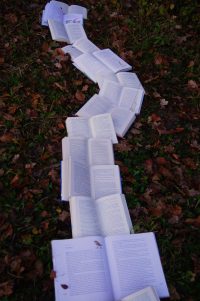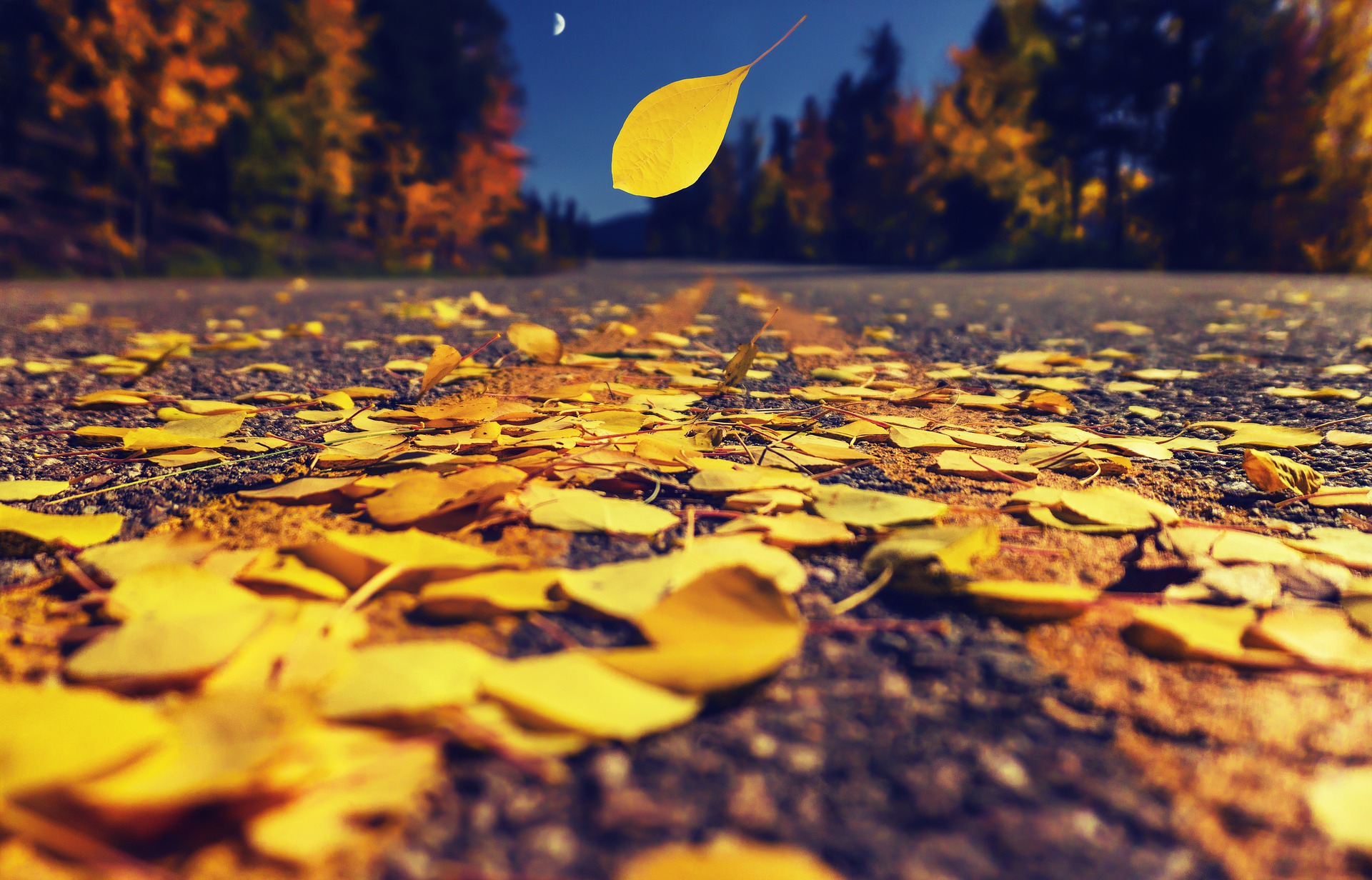Hoarding Books Versus ‘Living’ their Wisdom
Article By Sukesh Motwani
 I confess: I love seeking knowledge. I read a lot, and also hoard many more books than I can actually read…I am a bibliomaniac. Thomas Frognall Dobson spoke of this fictional “neurosis” that prompts an obsessive desire to collect books. (1) But there is a more fascinating Japanese word for it: Tsundoku, which essentially is to do with the hoarding of books, many of which shall never be read. We simply allow these books to pile up on our book shelves.
I confess: I love seeking knowledge. I read a lot, and also hoard many more books than I can actually read…I am a bibliomaniac. Thomas Frognall Dobson spoke of this fictional “neurosis” that prompts an obsessive desire to collect books. (1) But there is a more fascinating Japanese word for it: Tsundoku, which essentially is to do with the hoarding of books, many of which shall never be read. We simply allow these books to pile up on our book shelves.
Synchronistically, I read about this Japanese term a few months ago, just as the wind had knocked over a precariously perched tome of books, onto the floor. My teacher’s words from a class at New Acropolis echoed in my heart: “Seek wisdom…but only seeking will not help until answers are found and embodied, and lived. As one is able to live in daily life what one learns, it truly becomes lived wisdom, rather than plain intellect.”
This moment spurred some introspection. I have been gathering books on spirituality by contemporary teachers of Advaita philosophy, Tibetan Buddhism, Zen Buddhism, spiritual poetry, psychology, mythology, travel, acclaimed fiction to do with the human condition, or even darker aspects of the human mind such as criminal behaviour, etc. However, I have read only half the books I have collected. Not only is my mind intellectually fascinated by spirituality and the human mind, but I also seek validation and appreciation from others around me, based on the verbal discussion of these concepts. This thinking mind, my Intellect, had become but the monstrous collection of concepts; it was nothing but a cup, absolutely filled to the brim.
It is also evident that some of the basic truths I have been learning have embedded themselves into my actions in daily life. So, my aspiration for knowledge hasn’t been entirely in vain.
A small passage from Lao Tzu’s Tao Te Ching makes deeper sense to me now: “Fill your bowl to the brim and it will spill. Keep sharpening your knife and it will blunt. Chase after money and security and your heart will never unclench. Care about people’s approval and you will be their prisoner. Do your work, then step back. The only path to serenity.” (2)
Rudolf Steiner said: “Whoever seeks higher knowledge must create it for himself. He must instil it into his soul. It cannot be done by study; it can only be done through life. Whoever, therefore, wishes to become a student of higher knowledge must assiduously cultivate his inner life of devotion. Everywhere in his environment and his experiences he must seek motives of admiration and homage.” (3) This embedded the conviction that I had to use the thinking-mind to seek, and to ask questions, and to consume knowledge. But it also clarifies that it is in actually dealing with the challenges and obstacles in daily life, with harmony, kindness, and discernment, that one might find the real evidence that the knowledge has become wisdom and assimilated into my being.
Traditions suggest that the human being has access to Manas, the higher objective mind, unlimited by time and space, and therefore not driven by conditioning or opinion, but motivated by, and discerning of, Truth, Beauty, and Goodness. Hence there lies no problem in the seeking of knowledge. But the true answers one might reveal by using the thinking mind to engage with That which is beyond the thinking mind. This, perhaps, is the key to intelligence that emerges from real insight and experience.
So, after a life season of hoarding and consuming books, a season of introspection on how to live the teachings in a better manner, has begun. This requires effort and discipline but is extremely empowering because it has facilitated changes in my actions and my responses to daily life situations. Humbly, I have tried to become the teaching, rather than just satiating myself in knowing things or spouting them in conversation. We do not submit to a thought or teaching in a book because of dogma-induced conditioning or fear, but by experimenting with its application in our life journey. We need not depend on others’ opinions or advice; we can definitely take the help of their experiences as good inspiration, but ultimately we must experiment and realize it for ourselves.
I understand that the thinking mind may never stop ‘seeking’ knowledge. But I have also come to realize that if I develop the conviction that the various voices of the thinking mind are rooted in desires, and belong to my transient personality, then it might lead to a gradual process of ‘liberation’ from dependence on, and identification with, them. The display of knowledge, gymnastics of the intellect and cleverness are not necessarily signs of true wisdom. It is simplicity, humility, the fearlessness to try, the ability to learn from failure, and true compassion that point to true wisdom.
Therefore, as I learn to deal with my Tsundoku, I cherish my unread books, because they will demand from me new experiences, to practically investigate new questions; they promise to me the ecstasy of future epiphanies, and a life still unexplored. Hence life’s journey can become about integrating the learnings into thoughts and actions, rather than exhibiting and celebrating the intellect just for winning approval from others.
Summing it up with a Zen Story (4):
A person asked, “What is a minor enlightenment?”
Master Jiyu-Kennet said, “A what?”
The person continued, “A minor kensho, a minor Satori?”
Jiyu-Kennet replied, “Enlightenment is enlightenment. Sometimes the glimpses are big and sometimes they are small, but it is still one and the same thing. Don’t think that the enlightenment is bigger or smaller.”
The questioner continued, “I had the impression that once you got enlightenment, you got it.”
Jiyu-Kennet said, “Once you have realized it, you will always know it. But if you don’t keep your training up, heaven help you; you’ll be worse off than you were before. It’s not something you ‘get’, it’s not something you ‘keep’ for eternity. Training, as Dogen says, is enlightenment. This is why Shakyamuni Buddha always carried his begging bowl and always wore his robe. A lot of people think, ‘Why didn’t he just sit back and enjoy it?’ Enlightenment isn’t something you have; it’s something you are, something you do.”
Eventually one realizes that life is not about knowing – but about becoming – ennobling the knowledge with practice.
The Voice of the Silence by Helena Patrovna Blavatsky states this poetically: “In order to travel on the path, thou hast to become that path itself.”
Image Credits: By Laura Kapfer | Unsplash | CC BY PD
The entity posting this article assumes the responsibility that images used in this article have the requisite permissionsImage References
By Laura Kapfer | Unsplash | CC BY PD
Permissions required for the publishing of this article have been obtained
Article References
1. Dobson, Thomas Frognall.




What do you think?